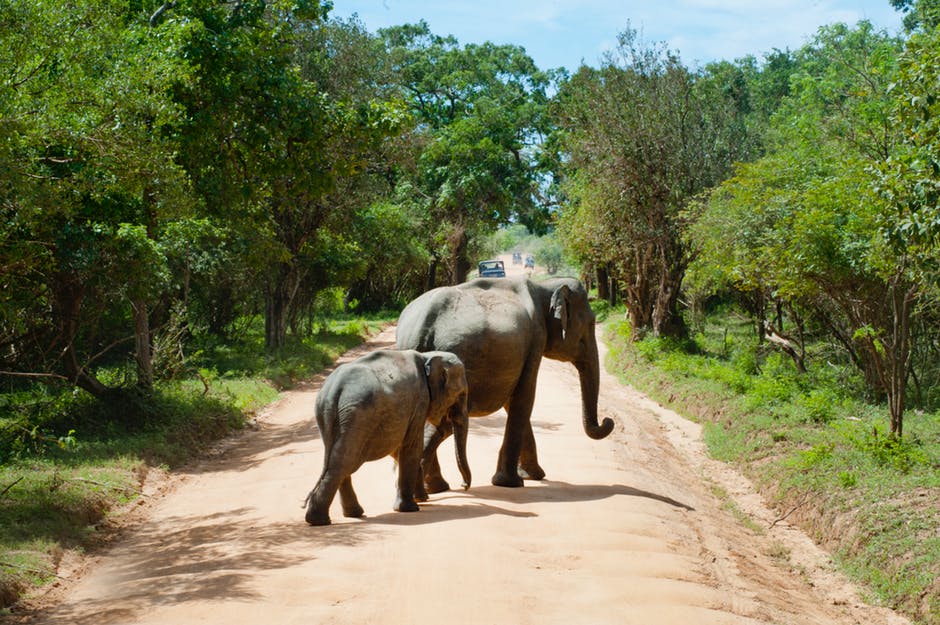Zoologist - As a career option

Ever read about wildlife conservation, oil spill treatment and animal rehabilitation efforts, and been curious about who gets to do that kind of thing? Zoologists are the people behind these programs.
Generally, a zoology specialization necessitates working with animals - in the wild in a lab, or sometimes, both. Zoologists try to under ecosystems, animals, their bodies, and their interrelations.
Remember that zoology is not merely a hobby for nature-lovers; it requires structured research and well-designed experimental studies, like any other science. Zoologists often get to work with emerging technological fields because of the applied nature of their work.
They could work with robotics to monitor animals, doctors to study disease or pathogens, biologists to understand bodily functions - and almost any other expert in any field you can think of.

What are the abilities and skills needed to be a Zoologist?
Zoologists don’t work in a fixed field of responsibilities. Initiative taking is specifically valued. For example, the skill sets they choose to develop and the activities that they choose to engage in as workers must be dynamic and adaptable to the facilities at their institutes.
Zoologists often collect biological specimens, measure data like climate or animal health over a number of days, students animal behavior, migrations, reproduction, disease, as well as overall health and how it is affected by factors like pollution, water scarcity and so on.
They use this information to monitor populations of animals, deal with threats to the ecology like diseases, manage hunting or conservation and even develop long-term plans or forecasts.
Being a zoologist in the 21st century requires an aptitude for mathematics and computers. Besides basic as well as advanced knowledge of biology, zoologists often work on many diverse programmers in their careers - they should have the ability to work well with a wide variety of people.
Verbal, as well as written communication skills, are of great help while designing awareness campaigns, handling public relations for a Forest Sanctuary, or documenting research.
Eligibility Criteria to Become a Zoologist
- +2: Students need to be from the Science stream and score an aggregate of 60%
- Bachelor’s Degree: Zoologists typically begin with standard Bachelor and Master's degrees in Science. The specialization is usually in Zoology, Biology, Ecology or Animal Physiology.
- Master’s Degree: Many zoologists go on to do PhD's in specialized fields of interest - often after beginning to work full-time at an organisation like an animal sanctuary, mangrove conservation center and wildlife agency.
Hands on experience through internships and exchanges, as well as awareness of natural phenomena and news, are both highly valued alongside formal education.
Careers as a Zoologist
Zoologists typically end up working as lecturers in academic institutions, researchers and advisers in conferences and public policy, wildlife educators and even on-field wildlife program managers - this would include wildlife rehabilitation, forest censuses and all kinds of other specialized functions.
A Day in the Life of a Zoologist
Hi, I’m Surendra. I work as a consultant zoologist with Karnataka Forest Department. I’m also a visiting lecturer at a few local colleges for their B.Sc programmes. I’m currently pursuing my PhD under supervision from a local professor, and my thesis involves hands-on work in the beautiful forests of Karnataka.
I had always wanted to make a difference to the environment as a child. As a zoologist, I get to do this in unique ways. Here’s what my day looks like.
7:30 AM: Wake up, get ready and reach the Department Office. As forests are (obviously) never located near big cities, the office to is in a semi-rural area that borders a huge forest in West Karnataka. There is usually electricity, but we get used to shortages of water.
Breakfast is provided at the Office itself. The staff all know me, as I am a regular fixture here because of my research and consultancy, even though I am not formally a government employee.

8:30 AM: Paperwork, even as a zoologist, is a consistent theme of the day. Working in collaboration with any government body means that there are always a tonne of permissions to be secured, letters, and emails to be read and responded to, as well as reports to be prepared.
This is as important as it is tedious - studies and conservation efforts must be documented so that future scientists can refer to them to study and develop new and hopefully better strategies.
This is time-consuming and is hence broken up into chunks to be tackled at different times in the day.
10:30 AM: It’s time to inspect the local area and collect the required readings. My particular project is on the effect of local groundwater depletion on blackbuck populations in the forests of West Karnataka. Obviously, the entire area under study is huge, and can’t be covered in a single day.
Previously, readings would have to be taken by individuals at each point. This was often unreliable. Part of my thesis is the study on the effect of electronic tracking, which we are now implementing as part of the project, on our ability to study these phenomena.
1:00 PM: The instruments at different locations appear to be working fine. We saw a herd of antelopes grazing from our jeep during the survey. It is now time for lunch, after which there is a meeting with the IFS (Indian Forest Service) Officer in charge.

2:00 PM: After a good lunch with a wide spread of food-stuffs, we head to the meeting, which involves me, a few representatives of a conservation body, a research team and the Officer himself.
Our meeting is intended to discuss the funding and implementation of the move to increase the use of technology - such as robotics and locally networked sensors - to record and study information.
4:00 PM: The Officer was remarkably enthusiastic, and has agreed to many of the plans suggested for conservation and forest improvement. There is often disagreement on the nature of publicity and tourism promotion to be done in these circles.
This was a major point of discussion. It’s now time to address the remaining chunk of paperwork for the day. This includes correspondence with a local animal rights advocate.
5:00 PM: Time to pack up. Work in this sector is as fast-paced as you make it. That leaves a lot of time to pursue one’s own activities.
Later at night, I will work on an article that I’ve been asked to write for a major Indian newspaper as an insight into conservation efforts. I feel like I’m making the difference I set out to make.
Do you think you have the required ability and skill set to be called as a Zoologist? Are you looking for pursuing a career in this particular profession? We hope this article proved to be fruitful one you. Have your say in the comment box below. Enjoy Reading!
Login to continue reading
And access exclusive content, personalized recommendations, and career-boosting opportunities.















Comments
Add comment